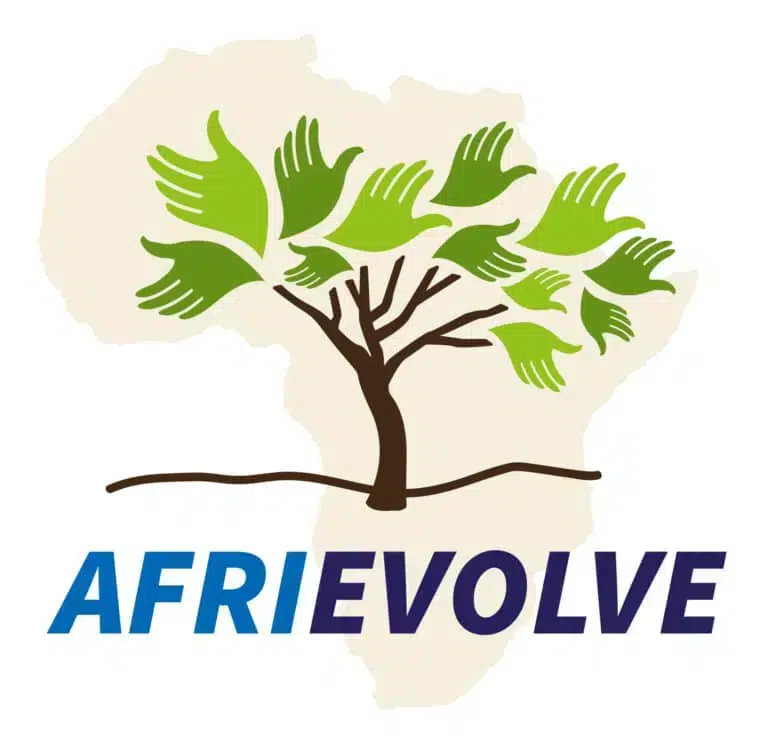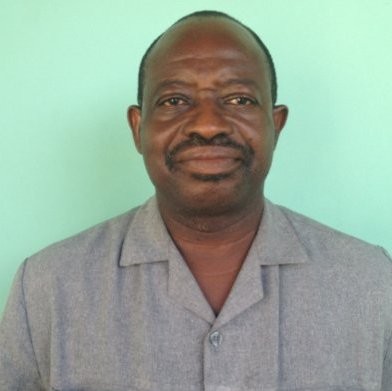AfriEvolve climate smart agriculture in action in Ghana and Uganda

The AfriEvolve project was conceived as a pan-African co-support platform to facilitate peer-to-peer learning exchanges and emulate south-south mentoring capacity building amongst participating partners. The project's activities contribute to gain organizational development skills and portfolio expertise on climate smart agriculture for improving civil society cooperation and smallholder farming resilience.
By Richard Appoh and Jacob Karuhura
All six African NGOs work at the focal point between conservation in and around protected areas, and the needs for livelihoods of local people. In particular, land use of all kinds leads to increased pressure on wildlife, forests, water bodies and other habitats. The effects of climate change such as heavy rain falls, unexpected frost, extreme dry spells and erosion are exacerbating poor harvests and crop failures. This has in turn led to increased dependency on natural resources.
It is vital to ensure sustainable land use, putting impacts of climate change into consideration so that yields can be stabilized and livelihoods secured.
Consequently, the six partner NGOs are introducing climate smart agriculture with local farmers at six selected pilot sites
In November 2022, the Ghana Wildlife Society
(BirdLife Partner) inaugurated and handed over a Climate Smart Agriculture Training Hub to the Chief and Executives of the Community Resource Management Area (CREMA) of Mognori, a farming community fringing the Mole National Park, located in northern Ghana.
The hub is a fenced garden equipped with a borehole, solar powered-pump, overhead tank with stand, and a drip irrigation system. The hub will be used by the women group in Mognori to cultivate dry season vegetables to supplement their household consumption and incomes, and serve as the venue for all AfriEvolve climate smart agriculture trainings.

In his welcome address, the Assistant Park Manager of the Mole National Park, Mr. Bona Kyiire said, the cordial relationship between the Mole National Park and the Mognori community is yielding a lot of fruits as evidenced by the number of NGOs supporting the community. He thanked the Ghana Wildlife Society, NABU and BMZ for implementing such an initiative aimed at improving the livelihoods of women in the catchment of the Mole National Park.
“This facility is intended to support the livelihoods of the women to improve food security and reduce poverty. Mognori community is considered for such projects because of their continuous support of the park in the area of wildlife protection through the CREMA.” said David Guba Kpelle
Executive Director of the Ghana Wildlife Society
He explained that the CREMA concept was initiated by the Wildlife Division of the Forestry Commission to encourage communities bordering protected areas to manage and sustainably utilize wildlife resources within a defined area through a community participatory approach and commended the CREMA executives for their effort.
The event was witnessed by the Chief of Mognori, the Tindanaa and people of the Mognori community. It also coincided with the AfriEvolve Peer-to-Peer visit to Ghana with representative of NABU (Nature and Biodiversity Conservation Union) SOS-Forêts, NATURAMA, and BirdLife in attendance.

The inauguration and handing over was followed with training on how to operate and maintain the facility, which was organized for the leadership of the Mognori Women Group and some selected CREMA members in December 2022. The participants, including nine women and six men were taken through sessions on improving group dynamics and record keeping; operation of solar-powered irrigation system; efficient water delivery and distribution in a drip irrigation system; and basic maintenance of solar-powered irrigation systems.
In Uganda, NatureUganda through the AfriEvolve project is directly supporting 500 farmers, in 5 Community Forest Management Associations (CFMA) and their families to benefit from climate smart agriculture interventions. The interventions are aimed at climate change mitigation and adaptation as well as productivity increase in the communities fringing the Echuya Forest Reserve. The Echuya Forest Reserve is a highland forest area with an altitude of about 2,570 m in the Albertine Rift in western Uganda. It covers an area of about 4,000 ha and is located in one of the most densely populated and poorest agricultural regions of Uganda. The forest is facing threats from the ever-increasing rural population that depends entirely on natural resources and forest products for their basic livelihood needs such as firewood, bamboo for construction, and medical plants among others.
NatureUganda aims to reduce this over dependence by supporting the fringe communities of the forest reserve through climate smart interventions such as: training an equipping them with tools such as hoes and pick axes to construct soil and water conservation structures; planting of trees to stabilize the constructed soil and water conservation structures and also serve as alternative source of fuel-wood; and giving out modern beehives for honey production and its value addition as an alternative source of income for the communities and also conserve bees that are very essential for crop pollination.
NatureUganda is also making and providing energy-saving stoves to help reduce pressure on the forest for fuelwood; giving out animals such as sheep and goat to help provide organic manure to improve crop production within the land scape; and conducting awareness campaigns on climate change and climate smart agriculture.

The AfriEvolve project emphasizes the transfer of knowledge and skills. Trained farmers are encouraged to share acquired knowledge with fellow farmers as trainer-of-trainers (ToTs).
AfriEvolve also offers a regular open-to-public online capacity building program on climate smart agriculture, organizational development and nature conservation. Please connect to the Hatch platform to find detailed information about each of the events.
Expressing his joy, the Chairperson of Birara Batwa Community-Bukimbiri subcounty Kisoro District, Sembagare Francis said, “The implementation of AfriEvolve project has hinted on the biggest challenge that we the Batwa have always had of improving our yield since we have very small/no plots to grow more crops. I see every mutwa involved in crop growing using the organic manure from sheep which I had not seen before. Having got this sheep therefore, we believe food production in my fellow Batwa will increase as well as household income.”
AfriEvolve is an initiative running from March 2021 to December 2023 implemented by Nature Kenya, Naturama, Nature Uganda, the Ghana Wildlife Society, Nature Tanzania and SOS Forêts. The Nature and Biodiversity Conservation Union (NABU – BirdLife in Germany) coordinates the project and cofunds it with BMZ, the German Federal Ministry for Economic Cooperation and Development.

Header image: Some AfriEvolve beneficiaries constructing soil and water conservation structures © Ghana Wildlife Society

“This facility is intended to support the livelihoods of the women to improve food security and reduce poverty. Mognori community is considered for such projects because of their continuous support of the park in the area of wildlife protection through the CREMA”.
David Guba Kpelle, Executive Director of the Ghana Wildlife Society